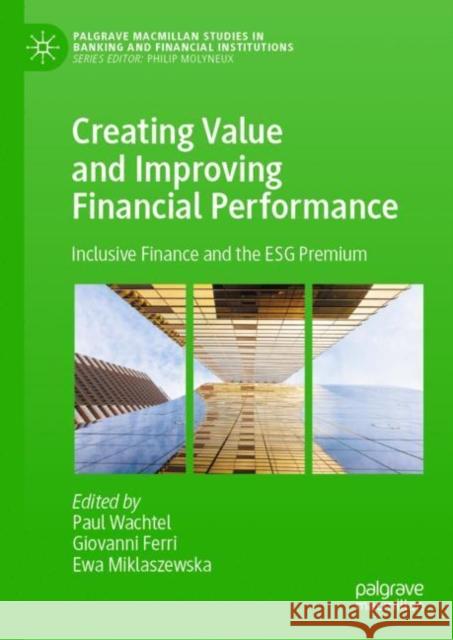Creating Value and Improving Financial Performance: Inclusive Finance and the Esg Premium » książka
Creating Value and Improving Financial Performance: Inclusive Finance and the Esg Premium
ISBN-13: 9783031248757 / Angielski / Twarda / 2023 / 228 str.
Creating Value and Improving Financial Performance: Inclusive Finance and the Esg Premium
ISBN-13: 9783031248757 / Angielski / Twarda / 2023 / 228 str.
(netto: 653,27 VAT: 5%)
Najniższa cena z 30 dni: 616,85
ok. 16-18 dni roboczych.
Darmowa dostawa!
This book discusses the transformation of the banking industry, particularly after a number of recent shocks: 2008 financial crisis, 2012 Euro-sovereign crisis, the pandemic COVID-19 crisis, the technological revolution, and reputational problems in banking due to climate risk and ESG (Environmental, Social and Governance) metrics.The book emphasizes two post-pandemic issues: the role of financial education and inclusive finance, and responsible banking and ESG priorities. Individual chapters analyse how the pandemic shed new light on social and governance responsibilities: Major issues include the importance and efficiency of financial education, and the impact of ESG programs on firms’ value, banks’ probability of default, bank business models and reputation risk. The book also addresses investors’ behaviour and the factors which may bias financial disclosure and reporting. By addressing whether the post-2008 crisis bank restructuring has effectively created a resilient and sustainable banking system – mostly from the European market’s perspective – the book will be of interest to researchers, academics, policy makers, and professionals of banking and financial institutions.
This book discusses the transformation of the banking industry, particularly after a number of recent shocks: 2008 financial crisis, 2012 Euro-sovereign crisis, the pandemic COVID-19 crisis, the technological revolution, and reputational problems in banking due to climate risk and ESG (Environmental, Social and Governance) metrics.The book emphasizes two post-pandemic issues: the role of financial education and inclusive finance, and responsible banking and ESG priorities. Individual chapters analyse how the pandemic shed new light on social and governance responsibilities: Major issues include the importance and efficiency of financial education, and the impact of ESG programs on firms’ value, banks’ probability of default, bank business models and reputation risk. The book also addresses investors’ behaviour and the factors which may bias financial disclosure and reporting. By addressing whether the post-2008 crisis bank restructuring has effectively created a resilient and sustainable banking system – mostly from the European market’s perspective – the book will be of interest to researchers, academics, policy makers, and professionals of banking and financial institutions.











